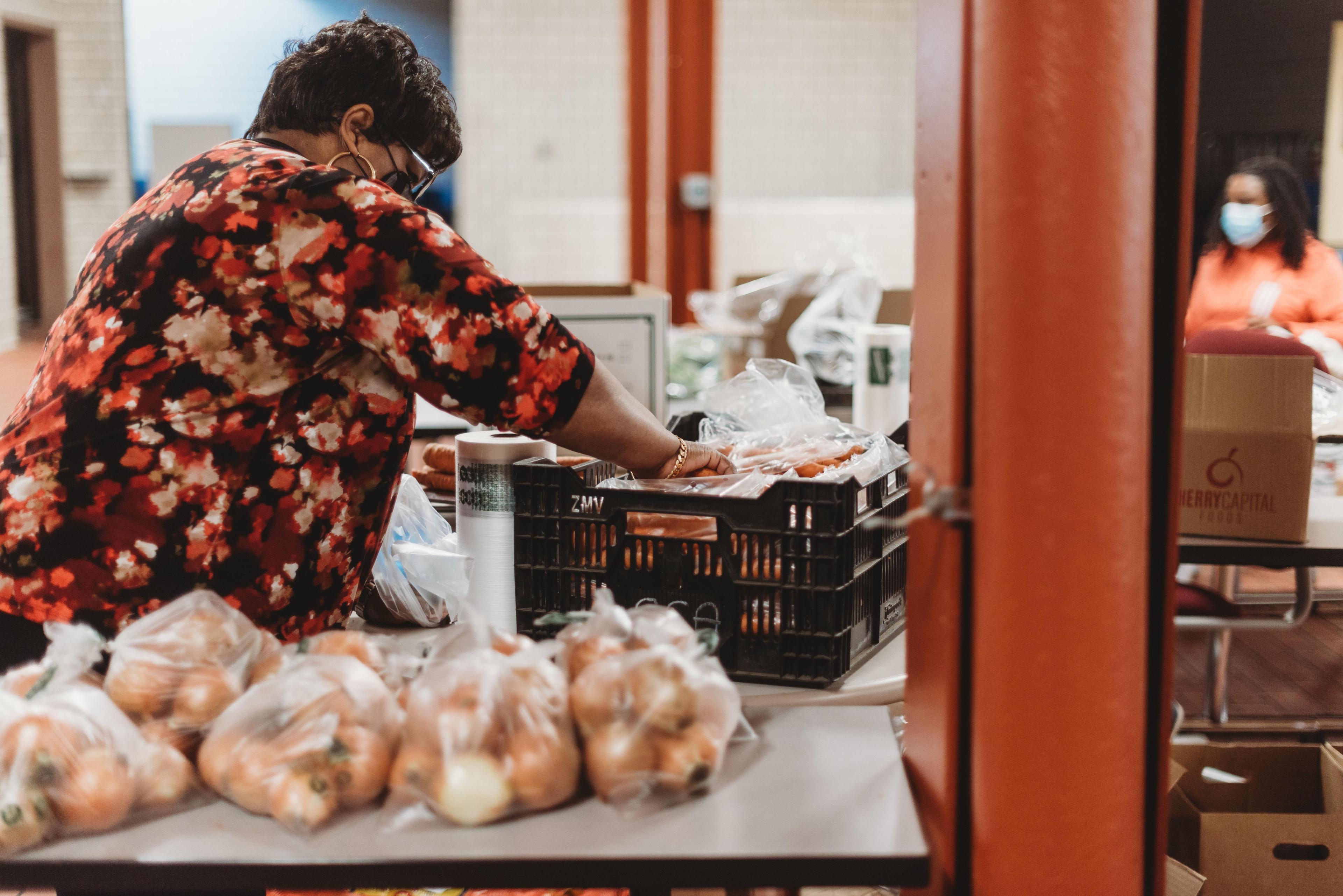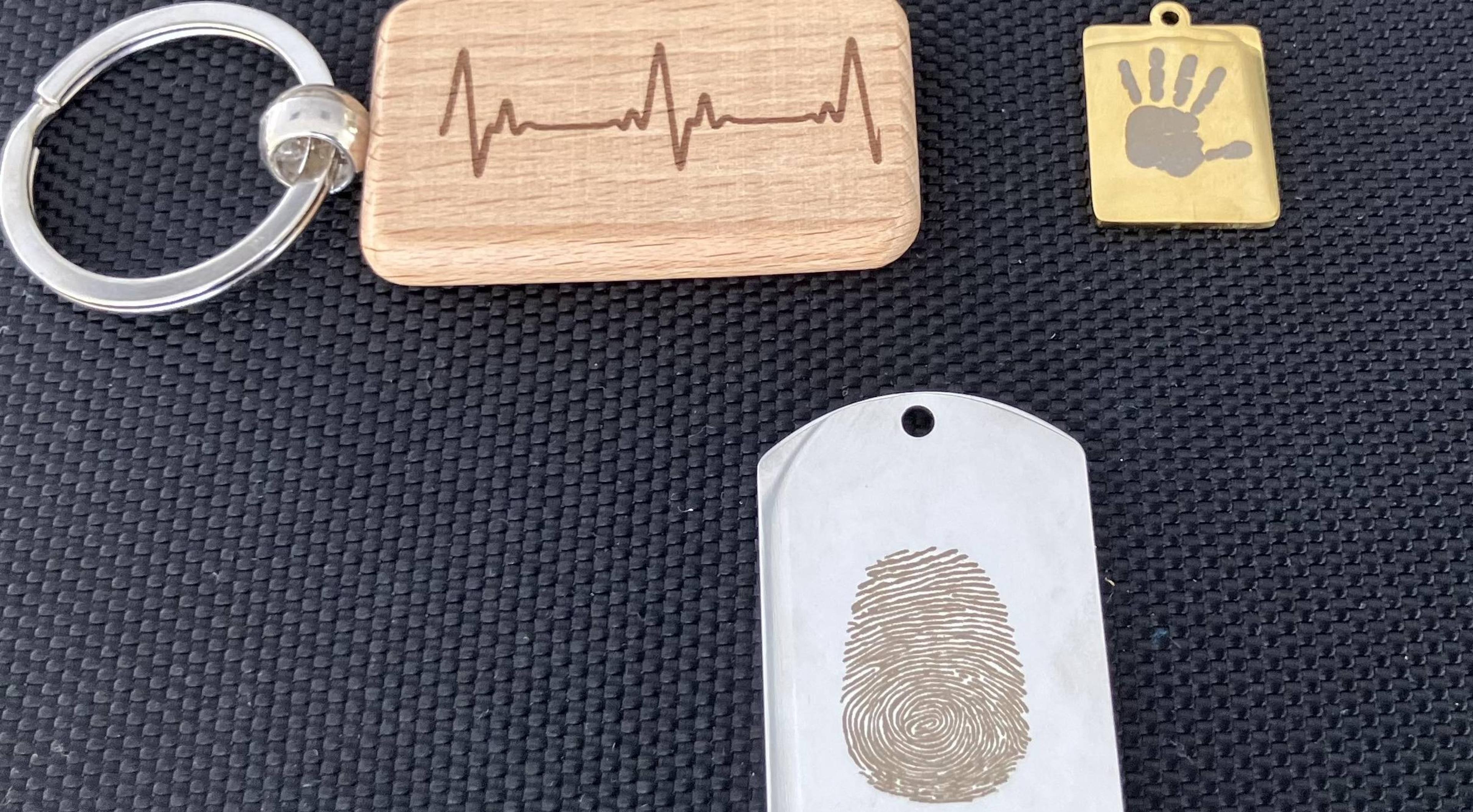United Methodist Community House Making Healthy Groceries More Affordable for Grand Rapids and Kent County Residents

Jake Newby
| 4 min read
Jake Newby is a brand journalist for Blue Cross Blue Shield of Michigan.

In Kent County, close to 20,000 residents live in a “food desert,” which are areas where people have extremely limited access to healthy, affordable food.
The South East End area of Grand Rapids is a food desert where mostly older adults, young families and the highest concentration of minorities in Kent County live. This area suffers when the cost of food increases, big-box stores raise their prices and then mom-and-pop grocery stores raise theirs even higher to offset costs. Over the past few years, the United Method Community House (UMCH) has set out on a mission to correct this trickle-down effect as much as possible.
In 2021, UMCH opened its own on-site Fresh Market storefront at 900 Division Ave S. with a goal to offer fresh, affordable groceries to communities in the South East End area.
“It’s a suffering and rundown area of the community,” said UMCH Co-Chief Executive Officer Carla Moore. “The individuals who need this Fresh Market, a lot of times, they are waiting until the first of the month and then they’ll get on the GO!Bus and they’ll go way out where they can get to a Walmart or a Meijer. Now they can go around the corner or down the street to get their staple needs. And we have seen that play out with several community residents.”
Once the Fresh Market was built, UMCH sought help from the Blue Cross Blue Shield of Michigan (BCBSM) Foundation to offset the procurement-to-retail pricing divide. The $30,000 Community Health Matching grant awarded by the Foundation was integral in helping the non-profit organization eliminate that pricing divide and build a consumer base.

“The grant has been extremely important in our ability to operate and achieve our mission, which was to assist with procurement,” Moore explained. “One of the problems neighborhood stores have is competing with the big box stores who are taking advantage of quantities. Unfortunately, the price that a neighborhood store pays per item is going to be greater than what a Walmart or Meijer does, because of that factor. When those stores become more expensive, the accessibility factor is lost.”
Moore said the Fresh Market initiative has helped increase community members’ access to nutritious foods as well as the overall quality of their lives.
“They don’t have to worry about setting up that ride on a monthly basis to go spend their dollars at a store they feel they can get good discounts at,” she said. “They can do that right here in their own neighborhood. And if they don’t want to spend it all in one trip, they don’t have to because they can easily make it right back to the store.”
“It’s impossible to have a healthy diet without access to nutritious food,” said BCBSM Foundation Senior Program Officer Kelly Brittain. "When community organizations like the United Methodist Community House make healthy foods more accessible and affordable, people have an increased ability to make nutritious food choices that support a healthier lifestyle and reduce their risk or complications of chronic diseases related to poor diets. The Foundation is proud to play a role in the tangible impact the Fresh Market has already had on these Kent County communities.”

To illustrate the BCBSM Foundation grant’s role in the UMCH Fresh Market’s food procurement initiative, Moore used the bulk purchase of Michigan-made strawberry preserves as an example.
“That jar of jelly might cost $7. We can turn around and offer it for $4, which would be in line with the Welch’s grape jelly you might find at Meijer. So, that takes the sting out,” she said. “Before we had that grant, unfortunately, some of those Michigan or locally made products that might’ve been at a higher cost, they were not necessarily what I would call accessible because they were not affordable.”
UMCH participates with the Kent County Food Policy Council which would lead efforts to increase the number of local stores participating in the “Double Up Food Bucks” program. Other forms of payment accepted at the Fresh Market include cash, credit, SNAP (Supplemental Nutrition Assistance Program), EBT (Electronic Benefits Transfer) and vouchers from Project Fresh and Prescriptions for Health, a pilot program in which physicians from area health clinics write prescriptions for produce for their patients. Their goal is to improve overall health by improving nutritional health.
After the life of the grant, UMCH’s Fresh Market aims to become financially self-sustaining by offering paid classes and engagement opportunities to the public. The plan is for proceeds from these classes to cover the procurement-to-retail pricing divide moving forward.
“What this grant has done is give us 18 months to build a foundation and move toward being self-sustaining,” Moore added.
The Community Health Matching Grant program supports nonprofit community organizations that develop, implement, and evaluate new approaches to health care issues by addressing health care access, quality, and cost. Potential grantees can learn more about eligibility and the application process at this link.
Photo Credit: UMCH/Carla Moore
More Foundation stories:





